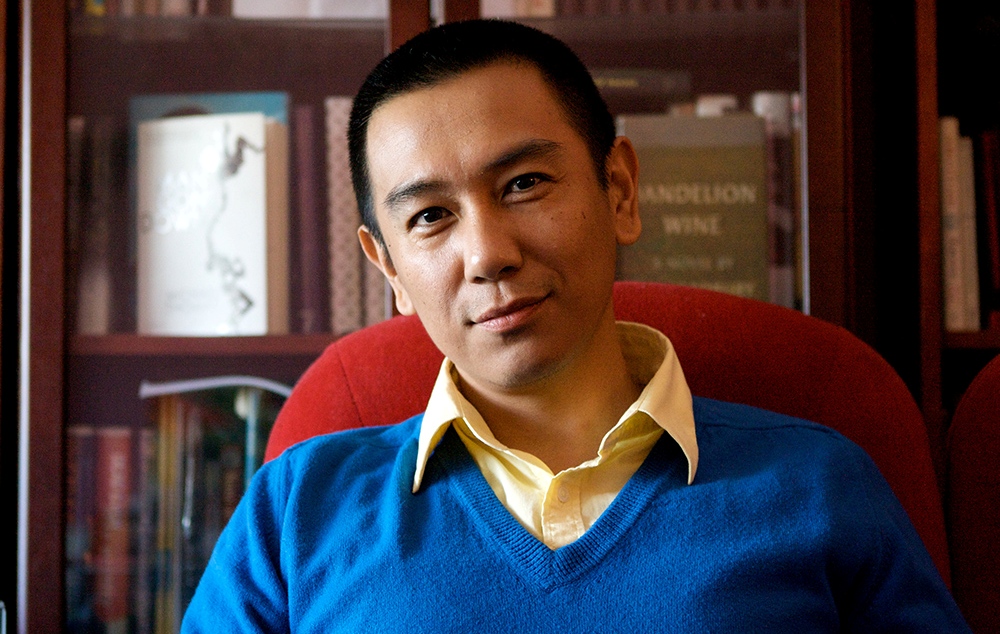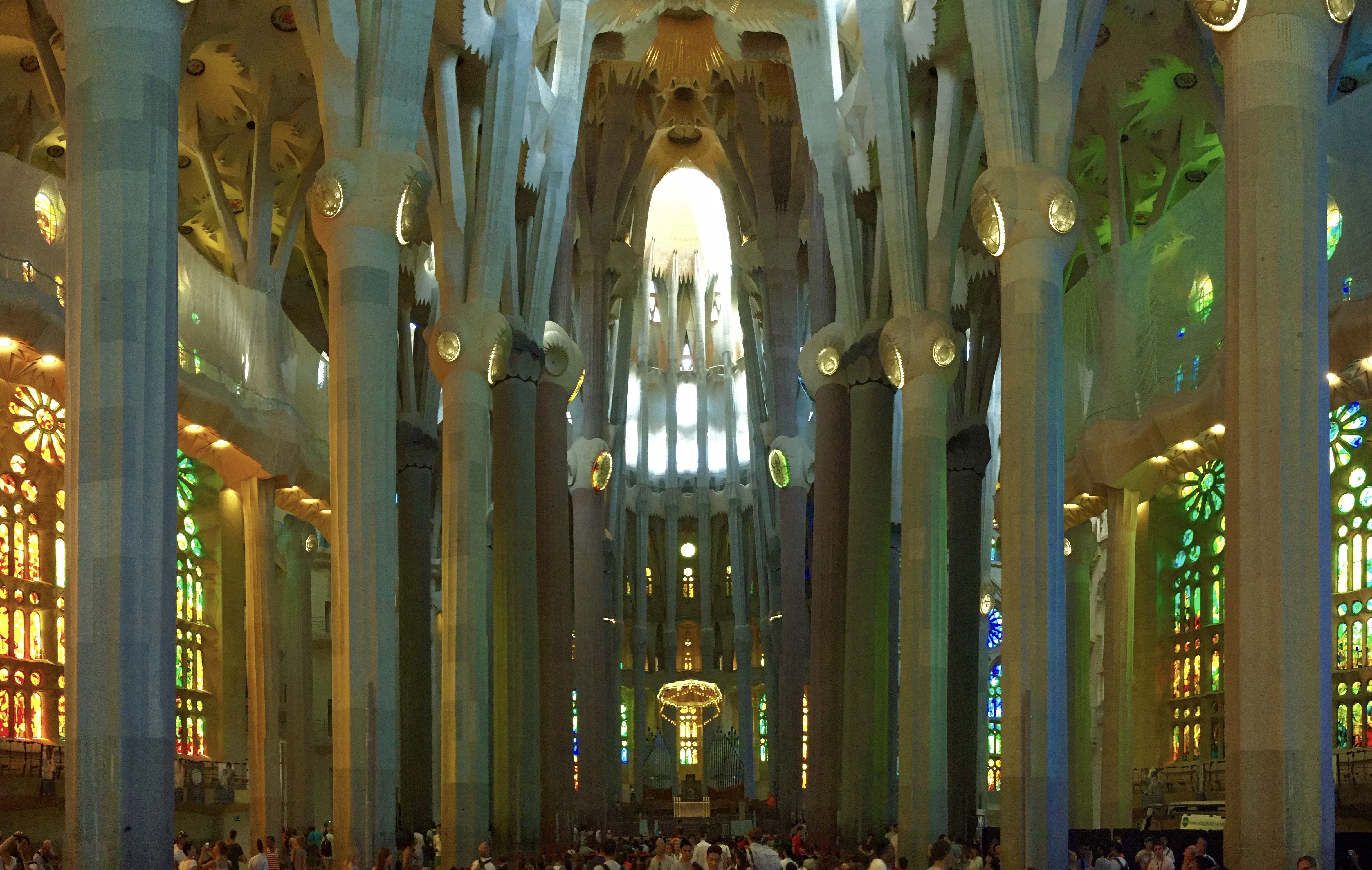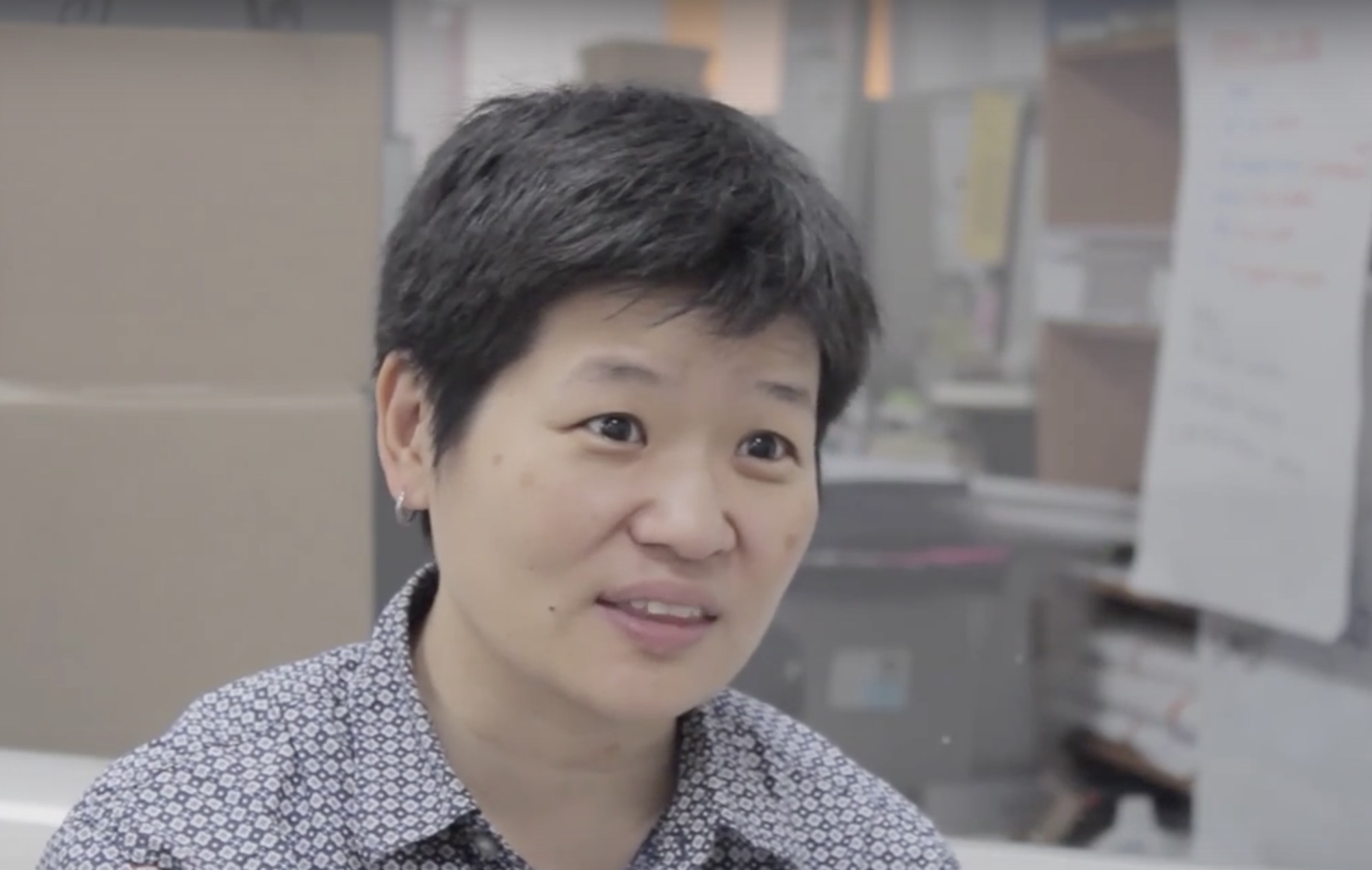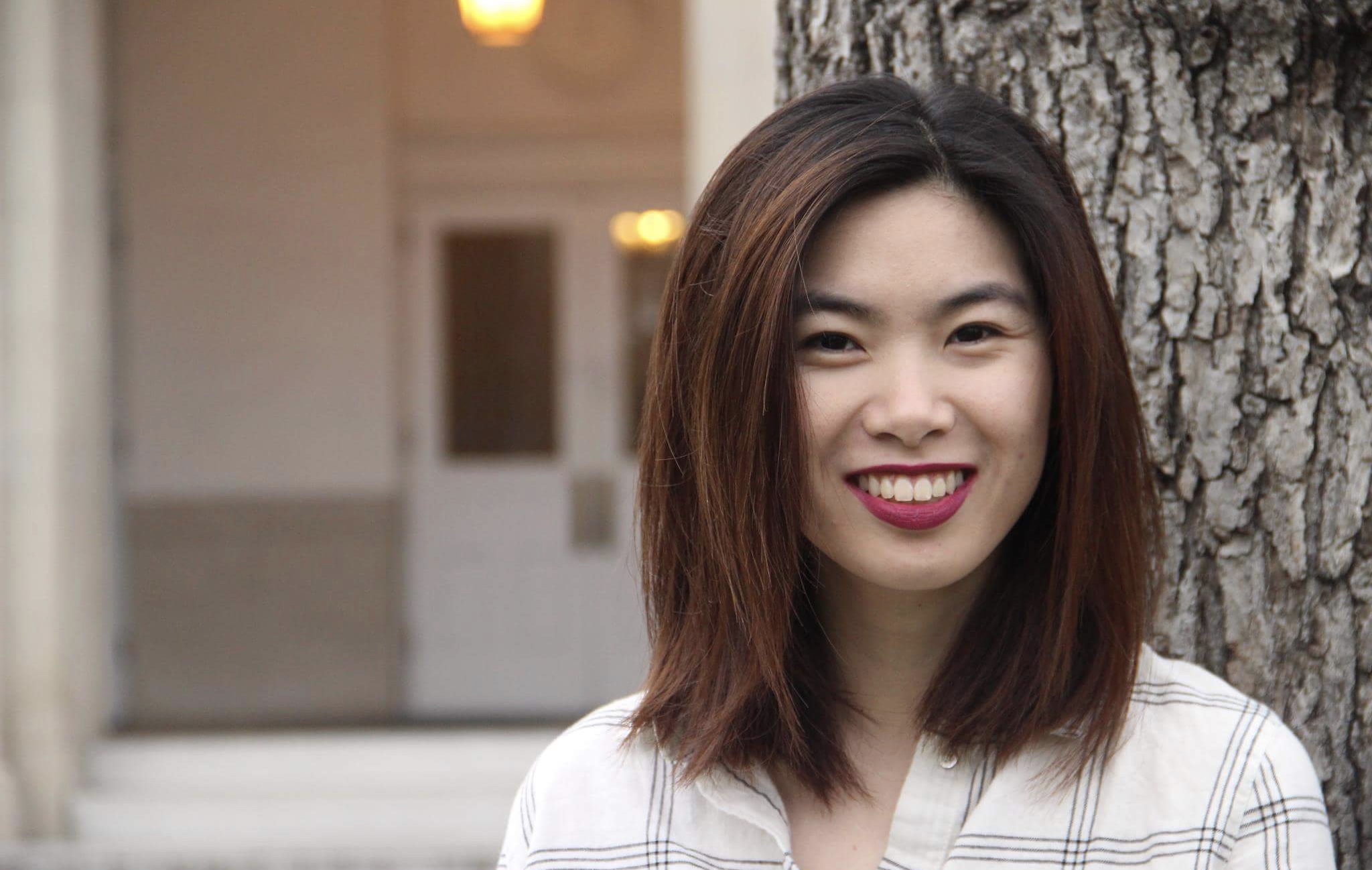
Noel Alumit
“Will the parents of a boy wearing brown corduroy pants and a blue vest come to the entrance.”
I’m three. I’m lost.
“Will the parents of a boy wearing jeans and a striped shirt come to the main register.”
I get lost a lot. At the zoo, the department stores, parks, museums, the city of New York. I don’t do it on purpose. I’m curious and adventurous. Why is the elephant’s nose so long? I wonder what would happen if Snoopy played with the other dolls. There are probably worms in the bushes. Go and find out.
“Will the parents of a boy wearing a green sweater come to the information desk. He’s crying…and we can’t make him stop…please come…immediately!”
I cry, howl. The world can be intimidating when all you see is legs. I cry because I know my parents will be pissed. They have other children to care for. Having to stop their trip to find me is not pleasant.
“Again, Noel?” Mama says, shaking her head. Her hands on her hips. A Lost Cause, she seemed to be saying.
“If you get lost again, we’re not going to come and find you,” Dad says, a snarl plastered onto his face. “You can live with the wallets in Lost and Found.”
My parents tie a leash to me, a piece of rope that goes around my chest. It doesn’t hurt, but it stays on me wherever we go. It comes off when I enter school.
I come home to find my mother. Dad is working. When day ends, Dad comes home, then Mom disappears. She is working. Mom is a nurse. Dad is a cashier.
I turn nine. I’m one of a handful of Filipinos, in a busload of black children, to be bussed into Bel-Air. Something about integration. We’re late to school because the driver gets lost in the Bel-Air mountains.
We’re caught in mist, above and below, a billowing whiteness. And I think of how we’re resting in God’s beard. The only thing missing is angels.
From the back of the bus, a kid points to a shellacked home with a huge picture window. I see inside. Plants and paintings are against a white wall. Someone yells from behind me, “That’s the house that Farrah Fawcett lives in.”
Mom is a nurse. Dad is a janitor.
At school, the black girls, like Sharon and Renee, find a corner of the yard, and make up dance steps. The white girls, like Becky and Lisa, watch. Mr. Thornton takes us into the school auditorium and teaches us square-dancing. Mr. Thornton knows the dances real well. I don’t think he’s married.
I’m hanging with the black boys. They talk about What’s Happenin’ and Good Times. I’m hanging with the white boys. One boy tells me how his father is the producer of a TV show I watch all the time. Glenn is the only other Filipino boy I know. We don’t talk about anything.
Mom is a nurse. Dad puts candy into vending machines.
In ninth grade, a computer glitch lands me on the cross country running class. I don’t particularly care for the sport, but I’m chubby. Actually, I’m fat. I take being put on the running team as a sign from God that I need to lose weight. So I don’t change the error.
I train with the team for a whole semester. Training requires running from school to Elysian Park. Then back to school. I was always the last one in–not because I was the slowest, although being slow was a factor–but because I can’t remember how to get back.
At home, Dad prepares to go to work. He wears his brown security guard uniform. A lock of his hair escapes his well pomaded head, falling across his left brow. It touches his gold rimmed glasses. The gold matches the badge of his uniform. I want to say something to him, but don’t know what. Something important. Something meaningful. Something beyond, “How was school?” I’m his son, and he’s my father, so something must be said at some point, right? I’m fourteen, and words don’t come easy.
I continue to run. I lose fifteen pounds.
When I’m in college, my father moves back to the Philippines. I forget to write. So does he. Words never came. A cousin of mine uses Dad’s phone to make long distance calls to the States. He runs up an astronomical phone bill. My Father refuses to pay it. It remains disconnected. We lose touch. Are you living with the wallets?
I audition for school plays. There is one play I want to do very badly. It is called As Is by William M. Hoffman. It’s a play about gay men. I’m eventually cast. I identify with the characters.
I meet a boy named Steve. We kiss in the darkness of my bedroom. I solidify a part of myself that I’d suspected for a long time. The next day Steve tells me he’s straight and was only experimenting. I look for him around campus.
I find him. He’s with his new girlfriend.
Mom is a nurse.
I get my degree in acting. After college, Mom suggests I be more active. With no school structure to dictate my life, I have lots of time. I join the church choir, to prove to God I’m a good Catholic.
I sing, losing myself in hymns hundreds of years old, staring at the emaciated corpse of a God. We hover behind the parishioners like angels. We watch them solemnly bow their heads.
I have a memory. It is of my father. His head is bowed. It is always bowed, his eyes cast to the ground. “It’s a good way of finding lost change,” he said
I do volunteer work for a nearby hospice. I’m told being gay is a sin. If I commit acts of kindness, like caring for the dying, maybe God will cancel out the sin.
**********
I’m auditioning. I sit in a waiting room filled with other young Asian men. I’m one of many heads the casting director looks over. She calls someone’s name to read for her.
I know I’m not going to get the part, because it requires heavy duty martial arts skills. My resume says I can tap dance, though. I go off into a corner and practice my generic Asian accent for the role. Asian accents were never my specialty in voice class. I try to remember how my father sounded, but I can’t.
“Please don’t do this to me,” he says
I’m surprised. Sam rarely speaks. Just sings. Broadway tunes mostly. He is small. With hair the color of fire.
He’s nicknamed The Wanderer. He shuffles down the halls of the hospice, turning left, right, up stairs, down stairs, into the parking lot out front, the trees near by. I follow him because it is my responsibility he doesn’t hurt himself. On our treks, we sing Sondheim.
I do most of the talking. I speak to him. About anything. I make up things. And when I can’t think of anything else, silence. It isn’t a deep silence, uniting friends or lovers. It is empty and uneasy, the result of having nothing left to say.
He stares blankly at me. I stare at the clock on the wall, wondering if I could skip out of my volunteer work early.
“Please, don’t do this to me.”
Dementia has eaten the insides of his brain, leaving him here, leaving him far away. But for a moment, he is back, a slight chemical connection in his brain forced him to return and see what is going on.
He sees what he is going through, what people are doing to him, how he is living. He hears the nurses and the doctors and the volunteers talk to him like a five year old, instead of the thirty-something man that he is. He remembers having to be spoon fed, with drool racing to stain his shirt. He feels the diaper around his waist.
To all of us, to all of it, he asks, in a delicate whimper, “Please, don’t do this to me.”
The chemical connection falters. He is gone again. Wandering…
I discover bars. Dim and smoky. Colored lights move here and there. Every once in a while, a red strobe light finds me, hitting me in the chest. I wander around with a where-could-my-friends-have-gone-look on my face to disguise the fact that I came alone because I have no other gay friends. I wonder what my father would think.
I eventually meet Frank. A friend. Just a friend. We pal around together. Have a few dinners and have a few beers. He’s from Australia.
Sam dies.
“He transitioned,” someone said.
I go to the bars again. To find someone. Anyone.
**********
I tell Frank about Sam. He sympathizes.
“You wanna go out?” he says. Frank’s voice is eternally wispy. With his long blond hair falling over his face, he reminds me of a nymph or a fairy–a real storybook fairy.
“Yeah, let’s go out,” I say.
We drive around Silverlake in my jeep. The top down. Like it was meant to be. Getting whistles from guys. More for Frank than for me. His blonde hair blows in the wind, like Farrah Fawcett.
Sam fades from my mind.
I’m 24. I’m realizing what it means to be a gay man. A bachelor forever. The memory of dead friends can disappear with a mad dash on the town.
We stop at a Chinese restaurant and have red wine. When we’re done, we walk to my car, parked a block away. It’s not even midnight yet. What else can we do?
Frank and I stop at a curb. A white pick-up comes our way. We wait for it to pass. It stops at the curb. It doesn’t move. A bunch of guys, maybe six, sit in the truck looking at us funny.
I grew up in the inner city. I know what a bunch of guys looking at you funny mean. I don’t know if gang bangers look the same Down Under.
From the front seat, I hear someone say, “Get ‘em.”
Before any of those guys jump out of the truck, I yell: “RUUUUUN!!!!”
I’ve seen the signs around the neighborhood that says gay bashers have been spotted in the neighborhood. Gay men are encouraged to walk in pairs and report any suspicious looking men. I pass one of the flyers stapled to the telephone pole when I take off.
“Fucking faggot,” a voice screams behind me. I’m thinking of cross country class. We were instructed to sprint the closer we get to the finish line. I always looked behind me to see if I was the last one. I turn around. A guy’s after me. Maybe it is the moonlight or the lamplight that helps me see the knife get closer to my back. The metal is bright, like a torch. I think of the Olympics and how they were held in Los Angeles in 1984.
I have never run in boots before. I’m running. I’m running as fast as I can, competing with wind. Run, run, run. Faster, faster, faster. If I focus on my breathing, and stare straight ahead, I can run forever. There’s a high that occurs when your heart pumps. Sweat falls from your body like tears needing to be shed. Let me get there. Let me. Please, Sir, let me. I’ll be free if I can just go fast enough. Faster. He’s still behind me. A few inches is all he needs. Oh, God please, let me get away. I’m turning left, then turning right, up and down streets, remembering the halls that Sam wandered.
Please don’t do this to me, I think to myself.
Somehow I’m alone. I get away. I thought Frank would be with me. But he’s not. I run back. They have Frank against the wall. They’re beating him. Frank’s a dancer. I’ve seen him leap and suspend himself in the air like a cloud. But he’s against a fence. There’s no way he could fly now.
“Get the fuck away from him!!!” I yell and charge toward them. Some wore scapulars, religious vestments no bigger than an inch that hang around your neck. I owned a scapular once. When I received my first holy communion, I was given one with a rosary. Catholic boys. The guys in the truck are Catholic. We may have shared a mass together.
“Get the fuck away from him!!!”
One of the gang guys hears me, he’s after me. I’m dodging him as he tries to attack me. I should have studied Tae Kwon Do like my brother. Like my sister.
More people come to the street. The gang guys disperse. I’m wondering what to do. I go to Frank. He’s shaking but all right. There seem to be no visible marks on him.
We go to the police and tell them we were just attacked. The receptionist tells us the attack happened in another district and to fill out a report at the precinct there. We drive. We make out the report. We neglect to call it a hate crime. We don’t go to the hospital. Why make the evening longer?
I drive Frank home to Hollywood. We pass a building where my father used to be a security guard. Frank tells me one of the guys tried to stab him. It was a switch blade. The knife folded when it hit his leg. He thanks God. God was watching out for him, he says. He wouldn’t know what to do if one of his legs were injured. I think of the computer glitch that put me in cross country class, teaching me how to run. But I don’t thank God.
Later, Frank and I try to forget what happened. We talk less and less. We lose touch. Forgotten.
Also later, I quit the choir. I don’t feel like singing anymore.
I feel an invisible rope pulling me home. And I’m lost. My mother sleeps alone. And I’m lost. I sit in the bedroom that I grew up in. I look around. I bury my head into my hands. Tears fall. And I’m lost. Will the parents of a boy… In the darkness, I scream with a voice that only I can hear Find me find me someone please find me.
I might drive to the beach and stand at that great In Betweeness, known as the Pacific Ocean. I might look out and realize that a part of me lives on an island somewhere out there. I might hear that my father had a heart attack. I might see pictures of him not looking the way I remembered. My mother might bring him home.
Mom is retired. Dad is a patient.
Dad and I might sit silently. I might try to make the silence unempty. I might look at him while he falls asleep, finding touch. I might wonder what to say when he wakes.
![]()
Noel Alumit is an Asian American writer and novelist of Filipino descent. Noel Alumit is the LA Times Bestselling author of Talking to the Moon and Letters to Montgomery Clift. His awards include the Stonewall Book Award (American Library Association) and the James Duggins Mid-Career Prize. He is widely anthologized, most recently in Best Gay American Short Stories, 2012. He is a writing instructor at UCLA Extension’s Writers Program, and serves on the Steering Committee of API Equality-LA. For more information: www.noelalumit.com.
This piece was originally published in Tilting the Continent: Southeast Asian American Writing edited by Shirley Geok-lin Lim and Cheng Lok Chua.
Categories: LGBTQ


